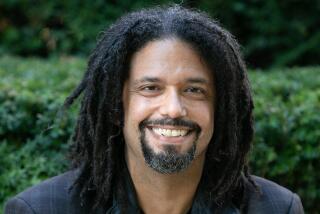Stadium Board Gives Tentative OK to Voluntary Ban on Smoking
- Share via
A voluntary no-smoking policy asking spectators at San Diego Jack Murphy Stadium not to light up was approved in concept Thursday by the Stadium Authority, the facility’s governing board.
If the policy, the wording of which is still being drafted, is adopted by the Stadium Authority after a public hearing Jan. 5, the arena would be the first professional outdoor stadium in the country to adopt either a mandatory or voluntary smoking ban, according to stadium manager Bill Wilson.
Although the policy, unlike a city ordinance, cannot be enforced by police, asking fans to stop smoking could prove more successful than trying to coerce them, said Mike Gotch, the Stadium Authority member who proposed the measure.
‘Relying on Common Sense’
“We felt that we would be more successful approaching this issue through the growing public awareness about the hazards of smoking instead of coming in with a sledgehammer,” Gotch said. “We are simply relying on the common sense and good will of the stadium fans not to smoke in the seating areas.
“The Stadium Authority just didn’t want to place the police and stadium personnel with another law that would be difficult to enforce, but we did want our fans to know that we were concerned about the effects of secondary smoke.”
Gotch’s proposal, which calls for a written policy that discourages smoking by spectators, was approved 8 to 0 by the authority, whose members are chosen by the City Council and the county Board of Supervisors.
The policy will direct stadium personnel to place no-smoking signs in seating areas and produce announcements and scoreboard messages asking patrons not to smoke. If adopted, the voluntary ban will take effect at the beginning of the 1989 baseball season.
Marie Jones, founder of Fans Advocating Individual Rights, a citizens group opposed to a smoking ban, could not be reached for comment Thursday.
Besides the drafting of a voluntary policy, Gotch called for a meeting with the stadium’s tenants, the Chargers football team and the Padres baseball team, to discuss the proposal.
Problems With Signs Seen
“I believe there needs to be further discussion about this,” Chargers President Jack Teele said. “For example, I could see problems with the no-smoking signs. When I see signs that say ‘No Parking,’ I don’t park. When I see signs that say ‘No Loitering,’ I don’t loit. If people see signs that say ‘No Smoking,’ I believe they will think it is some kind of ordinance, and not realize that it’s just a voluntary policy.
“I really don’t want to comment on this matter until I hear what the folks have to say at the public hearing,” Teele said.
Acting Padres President Dick Freeman did not return calls Thursday.
Since September, when Gotch introduced the controversial issue of a smoking prohibition, several types of policies and ordinances have been discussed. Gotch said stadium officials received about 300 letters on the subject.
“I would say about 75% to 80% of those letters favored a smoking ban of one form or another,” Gotch said.
He said recent discussions focused on drafting an ordinance that would allow smoking in the stadium before an event, during half time of football games and during the seventh-inning stretch of baseball games.
Both Goals Met
But Gotch said he believes the authority’s final decision to draft a voluntary ban is the most equitable solution.
“My goal was to begin a public awareness campaign about the detrimental impacts of secondary smoke,” Gotch said. “Meanwhile, her (FAIR founder Jones’) goals were to make sure that individual rights were not restricted. I believe we were both able to accomplish our goals.”
According to stadium manager Wilson, no professional outdoor stadium in the country has introduced a smoking prohibition. Wilson, who is a member of the Stadium Managers Assn. executive board, conducted a survey of the nation’s stadiums to assess no-smoking policies.
The association has about 120 members--including all NFL stadium managers and most professional baseball stadium representatives--and discusses issues such as parking, construction and concessions management.
“All the domed stadiums I checked with had a smoking prohibition,” Wilson said. “They’re not enforced rigorously, but they will relocate the offensive smoker to another section of the stadium.
“As for outdoor stadiums, the only one that has a no-smoking policy is Stanford Stadium at Stanford University,” Wilson said.
Smoking on Concourses
That mandatory enforced policy at Stanford’s athletic facilities has been in place since January, said Alan Cummings, a senior associate athletic director. He said the stadium is marked with signs, and announcements are made reminding spectators of the policy.
“Our policy prohibits smoking in the seats and in the aisles of Stanford Stadium, but does allow people to smoke in the concourse area,” Cummings said. “When we put the policy into effect, we didn’t know what kind of problems we would encounter, but so far we’ve had no incidents . . . 100% cooperation.”
When someone does begin to smoke, an usher is sent to the scene and asks that the cigarette be extinguished, Cummings said. The stadium’s uniformed personnel are prepared to escort patrons who refuse to stop smoking out of the stadium.
“But that hasn’t happened at all,” Cummings said. “I think one reason why we haven’t had problems is that the ban is not so inconvenient. . . . If a person wants to smoke, all they have to do is walk out onto a concourse.”
More to Read
Go beyond the scoreboard
Get the latest on L.A.'s teams in the daily Sports Report newsletter.
You may occasionally receive promotional content from the Los Angeles Times.










